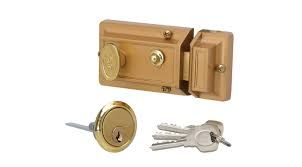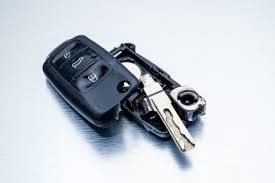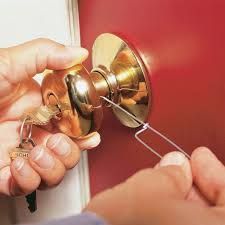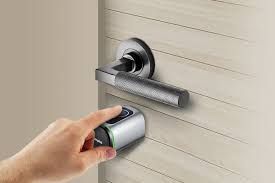What Door Lock Services Do Locksmiths Offer?
While many people first become acquainted with a locksmith after getting locked out of their homes, businesses, or cars, locksmiths are skilled professionals that offer a variety of additional services ranging from key duplication to door lock service . Today we’re going to explore the many types of door locks service that locksmiths provide!
Residential and Commercial Lockouts
As mentioned above, locksmiths are universally known for offering emergency lockout services. If you’re locked out of your home or office, you should call a local locksmith to get you back inside ASAP. A professional locksmith will arrive on-site with the appropriate tools and will pick up or bump your locks. However, if your door locks are damaged, the locksmith may have to resort to drilling them. If drilling is necessary, they will be sure to replace your locks once you are back inside.
High Security Lock Installation
Many construction contractors install standard locks on new homes and businesses which provide the most basic of locking capabilities. If you want to improve the security of your home or office building, you can hire a locksmith to upgrade your locks to high-security locks. High-security locks are more difficult to manipulate than standard locks and can protect you against forced entry attacks. Medeco and Mul-T-Lock are two of the best high-security lock brands since they are both bump-proof and drill-proof. Although these locks are more of an investment than ordinary door locks, upgrading your locks is something that you won’t regret.
Electronic Access Installation
Electronic locks are a popular door lock choice in many apartment and office buildings. Unlike traditional locks, which can easily be compromised if too many keys are floating around, electronic locks give multiple people access to a property without jeopardizing the building’s security. Electronic locks come in several forms including apartment intercom systems, card readers, and keypad entry systems. Whenever a code change is needed, reprogramming these locks can take just a few minutes! Additionally, electronic locks don’t need to be replaced as often as their mechanical counterparts. Electronic access is a great way to provide keyless entry to employees and tenants and keep track of who is entering and exiting your building. If you’re interested in this door lock service, get in touch with a local locksmith!
Door Lock Change
Door lock changes may be required in a handful of situations and should never be taken lightly. Whether a break-in occurs, you’ve lost your keys , or you’re moving into a new home, you’ll need to get your locks changed. All of these scenarios are urgent and you should call a local locksmith immediately for this door locks service.
Rekeying
Rekeying is a door lock service in which a locksmith alters your current lock so your old key will no longer work. Instead, you’ll need a new key. If you’re moving into a new apartment or rental home, your landlord should handle the rekeying; however, if you’re not leasing, you may need to hire a locksmith yourself. Rekeying your locks is usually a cheaper alternative to getting your locks changed, but can only be done if your locks are in working condition, since rekeying will not resolve any lock issues.
Door Lock Repair
Occasionally, when door locks break they can be repaired instead of replaced. A door lock repair service can even cost less than getting the lock replaced! However, this is dependent on the condition of the door lock. A reliable locksmith can determine whether your lock can be repaired or needs to be replaced.
Door Lock Installation
To secure your home and office building, you will need to install locks on all of your doors. There are many types of locks that are available, from electronic to high security locks. Feel free to do some research of your own or ask a local locksmith which locks they recommend installing on your doors.
Who Should I Call For a Door Lock Service Near Me?
If you’re looking for an exceptional door locks service near you and live in New York City, give Brothers Locksmith a call! Brothers Locksmith is known for our quick and friendly door lock services! Our technicians are hardworking and knowledgeable and will come to your location in no time! Give us a call today if you need any of the above door locks services.
Call Us Any Time!








